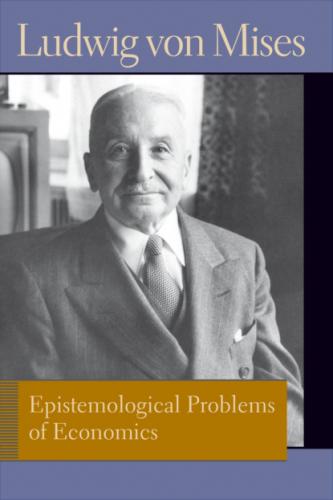4 The Experience of a Whole and Scientific Cognition
5 The Errors of the Universalist Doctrine
6 “Objective” Meaning
IV Utilitarianism and Rationalism and the Theory of Action
1 Vierkandt’s Instinct Sociology
2 Myrdal’s Theory of Attitudes
3 The Critique of Rationalism by Ethnology and Prehistory
4 Instinct Sociology and Behaviorism
2 SOCIOLOGY AND HISTORY
Introduction
1 The Methodological and the Logical Problem
2 The Logical Character of History
3 The Ideal Type and Sociological Law
4 The Basis of the Misconceptions Concerning the Logical Character of Economics
5 History without Sociology
6 Universal History and Sociology
7 Sociological Laws and Historical Laws
8 Qualitative and Quantitative Analysis in Economics
9 The Universal Validity of Sociological Knowledge
Conclusion
3 CONCEPTION AND UNDERSTANDING
1 Cognition from Without and Cognition from Within
2 Conception and Understanding
3 The Irrational as an Object of Cognition
[print edition page ix]
4 Sombart’s Critique of Economics
5 Logic and the Social Sciences
4 ON THE DEVELOPMENT OF THE SUBJECTIVE THEORY OF VALUE
1 The Delimitation of the “Economic”
2 Preferring as the Basic Element in Human Conduct
3 Eudaemonism and the Theory of Value
4 Economics and Psychology
5 Economics and Technology
6 Monetary Calculation and the “Economic in the Narrower Sense”
7 Exchange Ratios and the Limits of Monetary Calculation
8 Changes in the Data
9 The Role of Time in the Economy
10 “Resistances”
11 Costs
5 REMARKS ON THE FUNDAMENTAL PROBLEM OF THE SUBJECTIVE THEORY OF VALUE
6 THE PSYCHOLOGICAL BASIS OF THE OPPOSITION TO ECONOMIC THEORY
Introduction
1 The Problem
2 The Hypothesis of Marxism and the Sociology of Knowledge
3 The Role of Resentment
4 Freedom and Necessity
Conclusion
7 THE CONTROVERSY OVER THE THEORY OF VALUE
8 INCONVERTIBLE CAPITAL
1 The Influence of the Past on Production
2 Trade Policy and the Influence of the Past
[print edition page x]
3 The Malinvestment of Capital
4 The Adaptability of Workers
5 The Entrepreneur’s View of Malinvestment
Index
[print edition page xi]
FOREWORD TO THE LIBERTY FUND EDITION
Ludwig von Mises’s early interest was in history. Because the School of Law at the University of Vienna offered the opportunity to study history, he enrolled in that School, graduated with “highest honors” in 1902, and received in 1906 a doctorate in both Canon and Roman Laws. His early writings were on economic history. He wrote about workers’ pensions, Austria’s factory legislation, monetary and banking policy, foreign exchange policy, etc. As he wrote in his Notes and Recollections, published after his death (1978): “The historical method was [then] believed to be the only scientific method for the sciences of human action.” However, as Mises saw it, the science of economics was an entirely different discipline from history and called for a very different methodology.
By 1930, Mises had written books on various aspects of economics—monetary theory, interventionism, socialism, liberalism, and cyclical policy. But he considered it important also to discuss the theory of economics, i.e., its methodology. He felt it should be explained how our understanding of economic operations comes about. So he collected several of his lectures and papers on the theory of knowledge, i.e., epistemology, wrote a new introductory paper on “The Task and Scope of the Science of Human Action,” and published this volume, Epistemological Problems of Economics (German original, Grundprobleme der Nationalökonomie, 1933).
The “epistemological problem,” as he saw it, was the prevailing opinion that the historical method was the only way to study economics. His purpose in compiling Epistemological Problems of Economics was to explain the epistemology of the sciences of human action, or economics. Economics was not history; it was a science of reason and logic. It concerned the actions of individuals cooperating, competing,
[print edition page xii]
and exchanging with one another. And it explained how the market, trade, money, prices, and other economic factors developed and brought about today’s modern, complex market economy. “[E]conomics provides us with universally valid knowledge” (p. 6). “Our science . . . considers only the essential. Its goal is the comprehension of the universal, and its procedure is formal and axiomatic. It views action and the conditions under which action takes place . . . as formal constructions that enable us to grasp the patterns of human action in their purity” (p. 12).
The future is separated from the past by the present, an infinitesimal instant between the past and the future. No one can know or predict the future. But it is possible to make some predictions, qualitative, not quantitative, in the field of economics on the basis of the principles and laws derived from the regularity in the sequence and concatenation of economic (market) phenomena. “When men realized that the phenomena of the market conform to laws, they began to develop catallactics, the theory of the market and the theory of exchange, which constitutes the heart of economics. After the theory of the division of labor was elaborated, Ricardo’s law of association enabled men to grasp its nature and significance, and thereby the nature and significance of the formation of society. . . . The discoveries made by Hume, Smith, Ricardo, Bentham, and many others may be regarded as constituting the historical beginning and foundation of a truly scientific knowledge of society” (p. 4).
This volume represents Mises’s early attempt to describe the science of human action. He later expanded this explanation in his German-language Nationalökonomie (1940) and still later and in greater detail in English as Human Action (1949). But the germs of the theory of human action are contained herewith. Here he points out that the science of economics “is a priori, not empirical. Like logic and mathematics,
